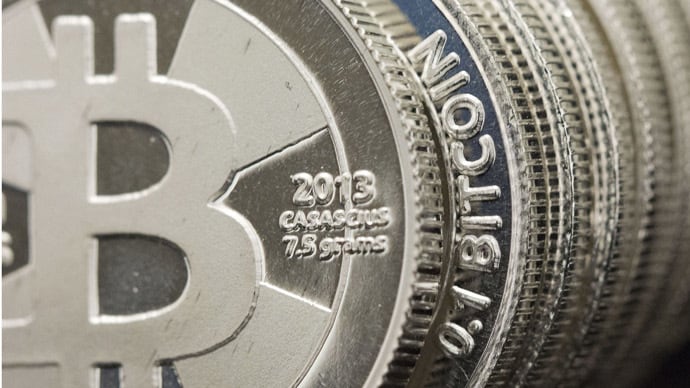
The United States Marshals Service (USMS) inadvertently leaked via e-mail a list of people interested in the June 27 auction of the 30,000 confiscated Silk Road bitcoins.
A U.S. Marshals spokeswoman told CoinDesk, “The message was not intended for any particular group of people, but for anyone who had emailed a question to the general mailbox to ask about the auction. Only recipient email addresses were disclosed,” adding, “The USMS apologizes for this mistake which was in no way intentional.”
The email sent Wednesday was intended to be sent as a blind carbon copy with the purpose of informing interested parties about updated information related to the auction, but it was instead sent as a carbon copy, allowing all recipients to see other recipient names.
What was supposed to be an anonymous auction now places the following people in a somewhat uncomfortable situation:
Daniel Folkinshteyn, assistant professor at Rowan University
Barry Silbert, CEO for SecondMarket
Luther Lowe, director of public policy for Yelp
Malcolm Oluwasanmi, chairperson of Little Phoenix Investment Group
Fabrice Evangelista, quantitative arbitrage at BNP Paribas
Michal Handerhanm, co-founder and COO of Bitcoin Shop
Dave Goel, managing general partner of Matrix Capital Management
Dinuka Samarasinghe, investment professional
Chris DeMuth Jr., Rangeley Capital
Fred Ehrsam, co-founder, Coinbase
Jonathan Disner, corporate counsel at DRW Trading Group
William Brindise, head investment manager at DigitalBTC
Michael Moro, director at SecondMarket
Jennifer R. Jacoby, lawyer at WilmerHale
Sam Lee, co-founder, Bitcoins Reserve
Shem Booth-Spain, artist and musician
This diverse group is now subject to not only a curious public, who may wonder what their intentions are, but also to the possibility of being targeted by hackers.
Ilya Subkhankulov, co-founder of the Bitcoin trading software provider, BTX Trader, whose name is on the list, said the fact that many individuals haven’t found good, secure ways to store bitcoins could be a real issue now that their involvement is public knowledge.
“There are some people on there, if they win the auction, they may be at risk for phishing attacks and other security issues. For us as a company, it’s not great. But we are a Bitcoin company, we spend a lot of time thinking about these things and securing bitcoin,” reported Bloomberg.
Subkhankulov offered another interesting perspective on the leak — that it gives interested parties the chance to see what they are up against, and to better understand what kind of bids they may be up against.
“For us as a potential bidder, we get to see what other players might be bidding,” Subkhankulov said. “It helps us figure out who may be bidding, how much they might be bidding.”
Yelp’s Director of Public Policy, Luther Lowe, told CoinDesk that he contacted the USMS as a private investor, and not on behalf of Yelp itself.
“It just removes some of the opaqueness that was originally intended around the process, and gives me an idea of how many people are going to be participating,” said Lowe in an interview. “The list of potential competitors seemed short, and may draw more people hoping to buy the virtual currency at a discount.”







